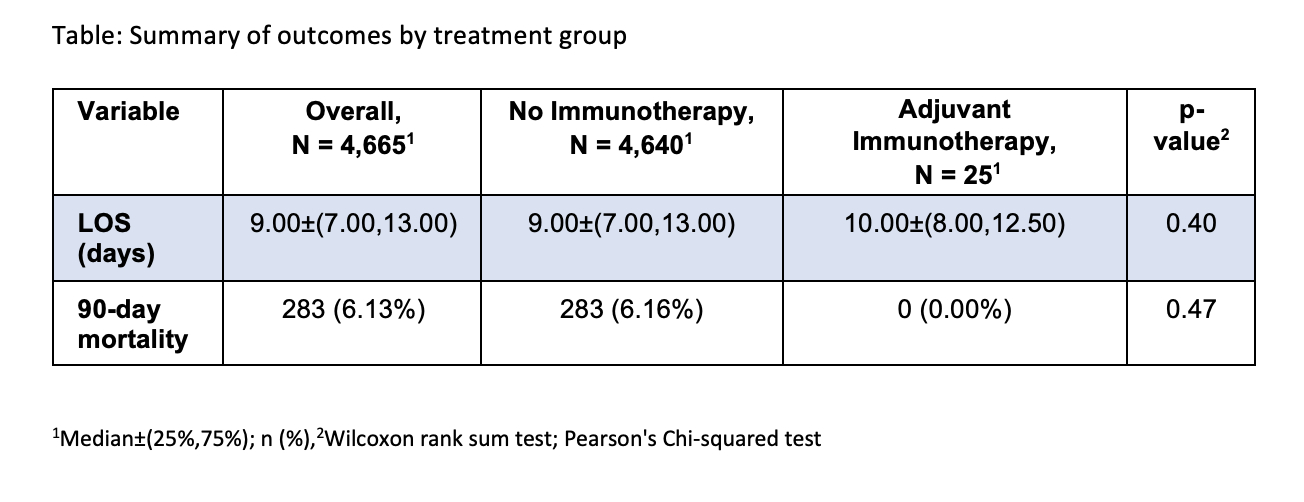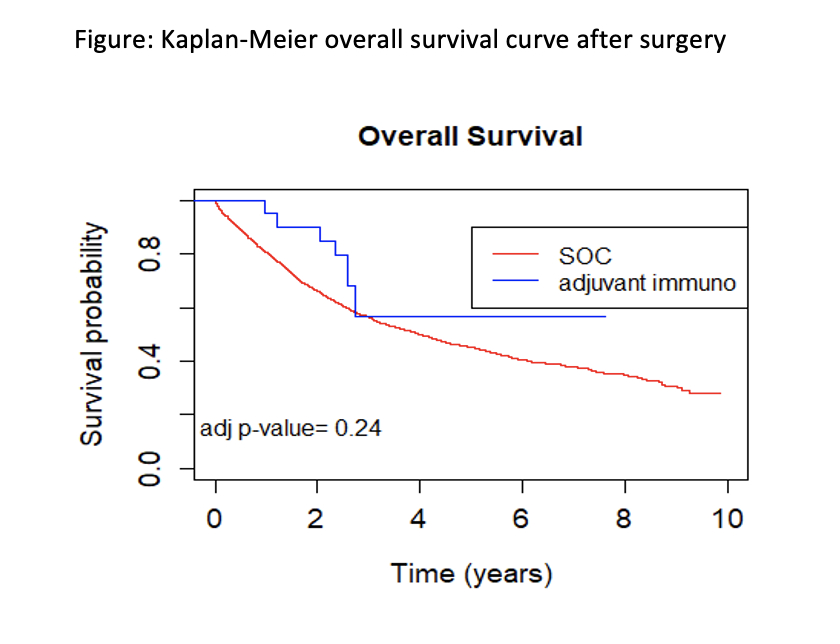Background
Treatment for esophageal cancer has significantly evolved over the last few years. Adjuvant immunotherapy is now considered standard of care for patients who receive neoadjuvant chemotherapy and radiation but still have residual disease following esophagectomy. However, the patient population that will benefit most from this intervention has not been determined. We hypothesize that patients with only residual T disease will not benefit from adjuvant immunotherapy.
Methods
The National Cancer Database was queried for all patients who underwent multi-agent chemotherapy and radiation followed by esophagectomy from 2012-2020. Patients with ypT1,2,3 and ypN0 disease were included for analysis. Patients who received immunotherapy were then compared to those who did not receive immunotherapy.
Results
A total of 4,665 esophageal cancer patients met inclusion criteria, of which 99.5% (4,640) received standard of care treatment and 0.5% (25) received adjuvant immunotherapy. The only statistically different characteristic between the groups was age (p=0.035) while sex, ethnicity, race, clinical T stage were not significantly different. Further analysis showed that adjuvant immunotherapy did not statistically influence hospital length of stay (p=0.40), survival after surgery (p=0.19), 90-day mortality (p=0.47), or overall survival (p=0.24).
Conclusions
As the role of immunotherapy expands, it is our responsibility to identify those that will benefit the most without over-treating those that will not benefit. Our findings do not support the addition of immunotherapy to standard of care treatment in patients with only residual T disease. These results are based on small numbers and with time further research with more patients will offer more insights. This data supports continued investigation in to the role of adjuvant immunotherapy.

